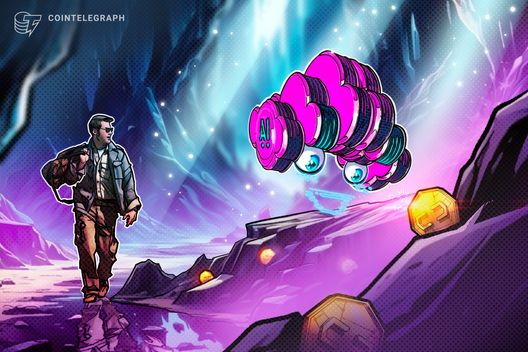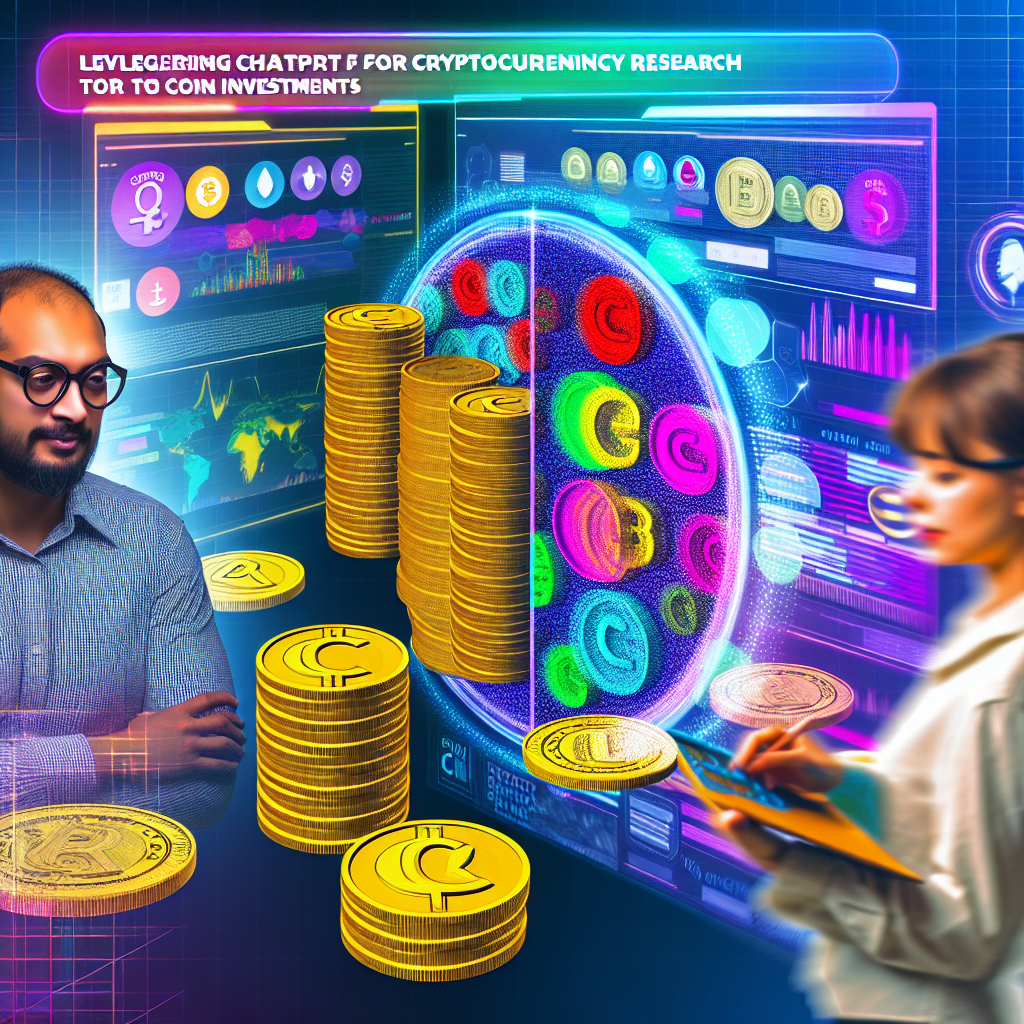
Key takeaways
ChatGPT simplifies intricate crypto projects by summarizing white papers, clarifying use cases, and elucidating tokenomics.
It’s essential to investigate the team, partnerships, and security risks before investing in any crypto token.
Comparing projects with their competitors reveals strengths and weaknesses, aiding in informed decision-making.
ChatGPT can propose relevant research questions, serving as a resource for both novices and seasoned investors.
Investing in cryptocurrency can be thrilling yet daunting, especially with the multitude of coins and tokens available today. From Bitcoin (BTC) and Ether (ETH) to lesser-known altcoins and memecoins, the market is replete with opportunities and hazards. Conducting thorough research prior to investing your money is crucial.
That’s where ChatGPT steps in.
This article illustrates how to utilize ChatGPT for researching cryptocurrency projects (using various examples), evaluating their credibility, and making well-informed investment decisions. Whether you’re new to the scene or a veteran trader looking to optimize your workflow, ChatGPT can serve as a valuable research aide.
Importance of research in crypto investing
Unlike conventional stocks supported by earnings reports and regulatory filings, crypto assets frequently lack standardized financial information. Instead, you need to sift through white papers, GitHub repositories, community feedback, and more. Neglecting thorough research can result in investing in overhyped or fraudulent ventures.
Crypto scams manifest in several ways, underscoring the importance of diligent research:
Rug pulls: These happen when developers create a new token, aggressively market it to draw investors, and then abruptly withdraw all funds, leaving investors with worthless tokens. A notable instance was the “Squid Game” token in 2021, which saw a price surge before the creators vanished with millions.
Pump-and-dump schemes: Groups artificially inflate a coin’s price by disseminating false hype, then sell off their holdings for profit, crashing the price and leaving others at a loss.
Fake projects or plagiarized white papers: Some tokens present white papers copied from legitimate projects or filled with vague jargon that masks the absence of a real product or team.
Pig butchering: Scammers cultivate long-term relationships to establish trust, then persuade victims to invest deeply in fake crypto projects, ultimately swindling their funds.
Deepfake scams: Advanced AI-generated videos or audio can imitate influencers or company executives to deceive individuals into sending crypto or revealing private keys.
Cybersquatting: Fraudsters register domain names similar to legitimate crypto projects or exchanges to mislead users and appropriate credentials or funds.
Phishing and fake websites: Scammers create sites mimicking popular tokens or exchanges to steal private keys and funds.
Therefore, prior to investing in any coin, it’s vital to verify these key aspects:
ChatGPT can assist in answering all these inquiries, with speed and clarity.
Did you know? Scammers have impersonated Coinbase in phishing scams by sending fraudulent emails or texts that resemble official Coinbase alerts. These messages typically request users to click on malicious links to “verify” their account or address “security issues,” tricking them into disclosing login details or transferring crypto assets. Always double-check the sender’s email and access Coinbase through their official platform to evade such scams.
Step-by-step: Utilizing ChatGPT to research crypto projects
Here’s how to effectively use ChatGPT for researching coins before investing:
1. Begin with a project summary
Employ ChatGPT to create a high-level overview of any coin. This aids in grasping the project’s objectives quickly.
Example prompt:
“Explain what Bitcoin Hyper (HYPER) does in simple terms.”
As you can see, ChatGPT can demystify complex technical jargon and help clarify the core concepts, even if you’re not a blockchain developer.
2. Obtain a breakdown of the white paper
White papers are essential documents that detail a crypto project’s technology and roadmap. They can often be technical and challenging to digest.
ChatGPT can scan or summarize white papers (if you provide them) and offer a more readable summary of the key points, saving you time while ensuring understanding.
Example prompt:
“Summarize the main points of the Stellar white paper.”
3. Evaluate the use case and market fit
Many coins claim to offer innovation, but do they address a genuine problem? You can ask ChatGPT to help evaluate a coin’s utility.
Example prompt:
“What problem does Chainlink solve, and who utilizes it?”
This provides context on how the project integrates into the larger ecosystem.
4. Assess the team and partnerships
A credible founding team and strong alliances often indicate legitimacy and execution capabilities.
Example prompt:
“Who founded the Avalanche blockchain, and what is their background?”
5. Evaluate tokenomics
Tokenomics pertains to how a coin’s supply, incentives, and distribution are configured. Flawed tokenomics can lead to inflation, rug pulls, or price declines.
Example prompt:
“Explain the tokenomics of the Hedera (HBAR) coin. What’s the total supply and how is it distributed?”
6. Investigate compliance and security issues
Security and regulatory challenges can jeopardize even the most promising crypto initiatives. You can inquire about risk factors with ChatGPT.
Example prompt:
“Has Tether USDt (USDT) encountered any regulatory problems?”
7. Compare with competitors
Understanding how a coin measures up against others in its sector (DeFi, layer 1, NFTs, oracles, etc.) can help pinpoint strengths and weaknesses.
Example prompt:
“Compare Sui and Sei blockchains regarding scalability and interoperability.”
You can even request pros and cons in a table format for easier analysis.
Did you know?ChatGPT was trained on a vast data set of diverse text from books, websites, and articles, enabling it to generate informed responses across various topics.
Bonus tip: Ask ChatGPT what you should be asking
If you’re inexperienced with crypto, you may be unsure of the questions to ask. Try this:
Example prompt:
“I’m considering investing in a new crypto token. What key aspects should I research or be cautious about?”
ChatGPT can provide you with a checklist covering fundamentals, technicals, sentiment, and security, perfect for developing your own research framework.
Did you know? ChatGPT’s architecture is built on the transformer model, which employs self-attention mechanisms to comprehend context in text, allowing it to produce coherent and contextually relevant answers.
What ChatGPT can’t do (yet)
While ChatGPT serves as a powerful research assistant, it’s important to acknowledge its limitations:
No real-time information unless paired with tools like web browsing or APIs.
No investment advice or assured predictions.
May produce outdated or inaccurate information (always verify facts).
Whether you’re investing a modest amount like $10 or a substantial sum such as $10,000, conducting thorough and diligent research remains your best line of defense against risks. Fortunately, AI tools like ChatGPT simplify the process of gathering insights, organizing information, and posing the right questions.
It’s essential to use ChatGPT as a supplement to your research, not a substitute for your critical thinking and due diligence.
This article does not provide investment advice or recommendations. Each investment and trading decision carries risk, and readers should perform their own research when making choices.

